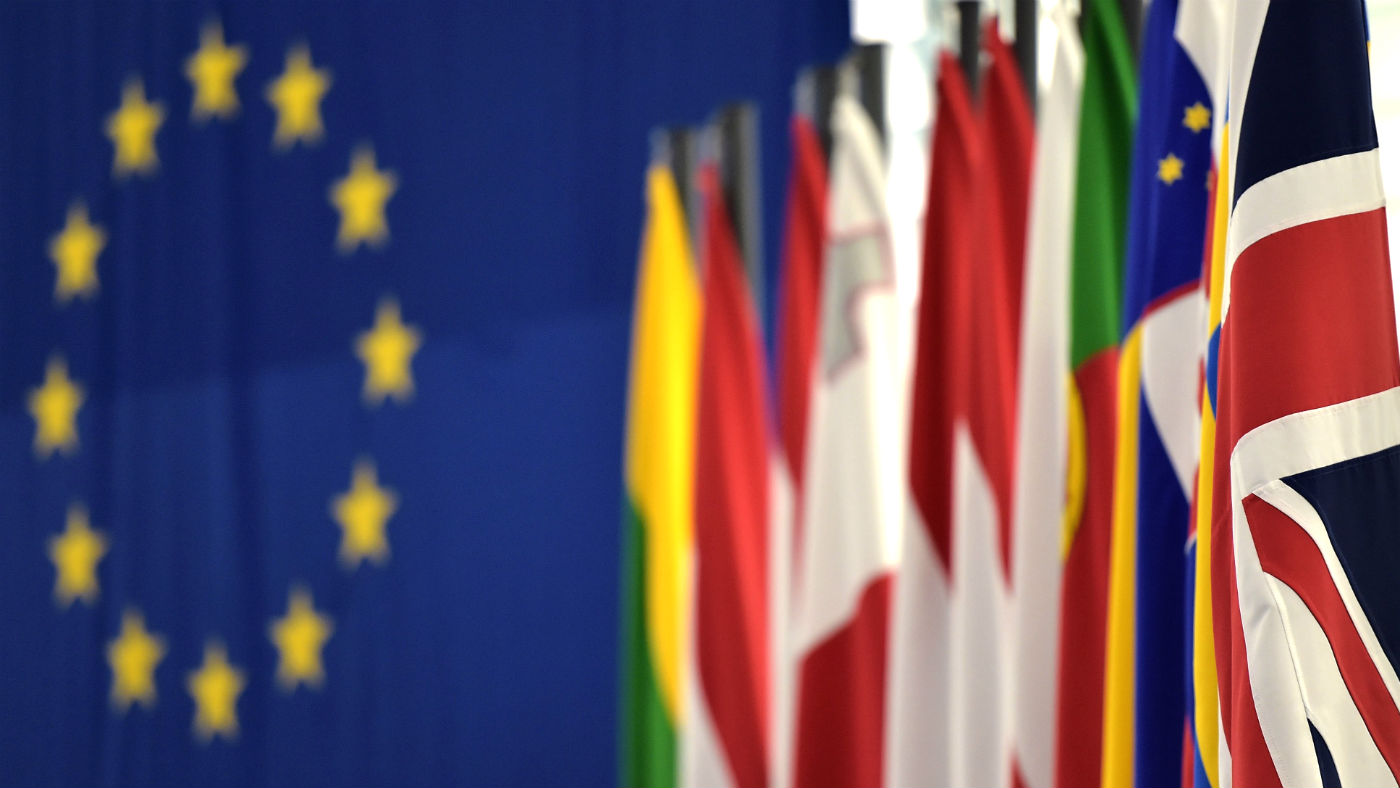What European election results mean for the rest of the EU
A populist surge fails to materialise as Greens and liberals make gains

A free daily email with the biggest news stories of the day – and the best features from TheWeek.com
You are now subscribed
Your newsletter sign-up was successful
While the new Brexit Party looks set to be the biggest single national party in the new European Parliament, across the rest of the continent the much-anticipated populist surge failed to materialise.
The headline takeaway is that the main conservative grouping, the European People’s Party (EPP), remains the biggest bloc but with a reduced majority after liberals, Greens and populists all made modest gains. This could hamper the efforts of Manfred Weber, the EPP’s lead candidate, to claim the European Commission presidency.
“But Brussels’ fears of a further massive swing toward the far right did not really materialise. Populists did well in some places, but largely retained the (strong) position they secured in 2014”, reports Politico’s Matthew Karnitschnig.
The Week
Escape your echo chamber. Get the facts behind the news, plus analysis from multiple perspectives.

Sign up for The Week's Free Newsletters
From our morning news briefing to a weekly Good News Newsletter, get the best of The Week delivered directly to your inbox.
From our morning news briefing to a weekly Good News Newsletter, get the best of The Week delivered directly to your inbox.
“Yes, illiberal parties did well in France and Italy, Poland, Hungary and beyond” he writes, “but overall no better than expected, and in some cases worse so”, with the bottom line being “the populists’ finish isn’t that much stronger than in 2014,” he adds.
Mirroring the success of their counterparts in the UK, pro-EU Greens and liberals made significant gains across the continent and could hold the balance of power in the new parliament, bolstered by Emmanuel Macron’s new En March MEPs.
Following months of dire warnings the below-par showing from anti-EU populists will come as a welcome relief in Brussels.
The elections will shape the direction of the EU for the next five years, determining the parliament’s stance on issues such as trade and climate change, and heavily influencing the contest for the bloc’s top jobs.
A free daily email with the biggest news stories of the day – and the best features from TheWeek.com
“The work of the parliament, which has acquired significant extra powers in recent years and now plays a major part in the EU legislative process, will undoubtedly become more complicated,” says The Guardian’s Europe correspondent Jon Henley, “but that isn’t just down to the populists’ advance”.
“The election results spell the end of the centre-left and centre-right joint hold over the legislature since 1979, giving way to a more divided pro-EU bloc that will include up to four parties,” says the Financial Times.
“The result will be a parliament fragmented like never before,” agrees Henley, “and the ‘less EU’ camp of nationalists, sovereignists and Eurosceptics itself reflects that fragmentation, divided by profound differences of ideology and policy.”
“This outcome reflects a tendency already apparent in national elections all over Europe: rejection of the status quo,” reports BBC Europe editor Katya Adler.
“Europe's voters are looking elsewhere for answers. They're drawn to parties and political personalities they feel better represent their values and priorities” be they from the nationalist right or pro-European alternatives, like the Green Party and liberal groups, says Adler.
Yet despite growing anti-EU sentiment across the bloc, overall turnout topped 50%, the highest figure since 1994, according to the parliament provisional results.
“It bucks a 40-year downward trend that had often been cited as evidence of the legislature failing to connect with its electorate,” says the FT.
-
 How the FCC’s ‘equal time’ rule works
How the FCC’s ‘equal time’ rule worksIn the Spotlight The law is at the heart of the Colbert-CBS conflict
-
 What is the endgame in the DHS shutdown?
What is the endgame in the DHS shutdown?Today’s Big Question Democrats want to rein in ICE’s immigration crackdown
-
 ‘Poor time management isn’t just an inconvenience’
‘Poor time management isn’t just an inconvenience’Instant Opinion Opinion, comment and editorials of the day
-
 Epstein files topple law CEO, roil UK government
Epstein files topple law CEO, roil UK governmentSpeed Read Peter Mandelson, Britain’s former ambassador to the US, is caught up in the scandal
-
 Iran and US prepare to meet after skirmishes
Iran and US prepare to meet after skirmishesSpeed Read The incident comes amid heightened tensions in the Middle East
-
 Israel retrieves final hostage’s body from Gaza
Israel retrieves final hostage’s body from GazaSpeed Read The 24-year-old police officer was killed during the initial Hamas attack
-
 China’s Xi targets top general in growing purge
China’s Xi targets top general in growing purgeSpeed Read Zhang Youxia is being investigated over ‘grave violations’ of the law
-
 Panama and Canada are negotiating over a crucial copper mine
Panama and Canada are negotiating over a crucial copper mineIn the Spotlight Panama is set to make a final decision on the mine this summer
-
 Why Greenland’s natural resources are nearly impossible to mine
Why Greenland’s natural resources are nearly impossible to mineThe Explainer The country’s natural landscape makes the task extremely difficult
-
 Iran cuts internet as protests escalate
Iran cuts internet as protests escalateSpeed Reada Government buildings across the country have been set on fire
-
 US nabs ‘shadow’ tanker claimed by Russia
US nabs ‘shadow’ tanker claimed by RussiaSpeed Read The ship was one of two vessels seized by the US military